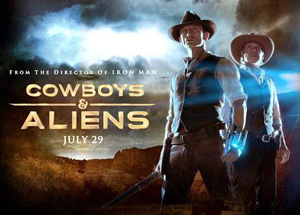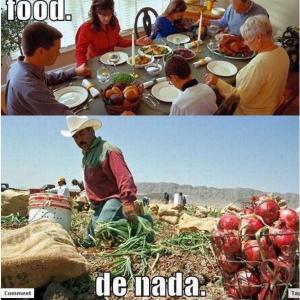
Julie Clawson is the author of Everyday Justice: The Global Impact of Our Daily Choices (IVP 2009). She blogs atjulieclawson.com and emergingwomen.us.
Posts By This Author
Women and the Olympic Gaze
I have a love/hate relationship with the Olympics. I love the pageantry and global drama of it all. And even as one who hardly ever watches sports (I make exceptions for Roller Derby and Quidditch), I nevertheless find myself glued to the screen whenever the Olympics roll around. At the same time I am uneasy with the neo-colonial aspects of the Games and the fact that one’s ability to win a medal increasingly depends upon how much money one’s country has (making the Games a vivid illustration of global economic injustice). Yet even as I have watched (and enjoyed) the London Games with conflicted emotions, I find myself more and more uncomfortable with the ways the presentation of the Olympics serves to reinforce harmful assumptions about women in our culture.
It started before the Games. As the world geared up for the Olympics, it was hard to avoid hearing some guy or another (from TV hosts to bloggers) saying that what they were most looking forward to watching was women’s beach volleyball. It was this strange inside joke insinuating that the real purpose of the Games was to give them an opportunity to see women diving around in bikinis. I even heard complaints about the new Olympic rule allowing women to compete fully covered (a concession offered to allow Muslim women to compete in the Games). It was uncomfortable to hear how nonchalantly women continue to be reduced to mere sexual objects, but I brushed it aside as typical of our culture.
Wild Goose 2012 Reflection
The 2012 Wild Goose Festival East wrapped up just under a week ago and I am still trying to process my experience there. As I tweeted as I drove away from the fest, I left feeling exhausted, hopeful, and blessed – that strange combination that reflected the emotional impact of my time there. And it was a truly blessed time.
I was honored with the opportunity to speak on The Hunger Games and the Gospel as well as do a Q&A on everyday justice issues at the Likewise tent. I also was able to join Brett Webb-Mitchell on a panel discussion about living with disabilities in religious communities.
But beyond those conversations I was able to help initiate, I also found a generous and safe space to connect with friends, wrestle with difficult questions, and dream of a better world. Such spaces are so rare in my life these days, that finding such at Wild Goose was a precious gift.
There are, of course, the expected complaints about the festival. It was brutally hot (and that is coming from a Texan). I never ceased to be sticky, sweaty, and stinky and there were bugs everywhere. Camping in a field where every action (and parenting attempt) is on constant display is stressful and uncomfortable. And, as with many religious gatherings, there could have been greater diversity.
For the first hour I was there as I nearly passed out trying to set up a tent in the sweltering heat, I was in a panic mode wondering why I was stupid enough to subject myself to the discomfort and imperfection of it all again this year. Yet as I entered into the experience of being a part of this crazy wonderful gathering, those issues (although ever-present) faded in significance as I found myself fitting into a place where I felt I belonged.
Grace, Magic, and Hard Work
Beyond the typical objections that the Harry Potter books will turn children into Satan-worshipers and encourage them to disrespect authority, one mom complained that she found it inappropriate that at Hogwarts food magically appears on the table at mealtime. Her argument was that she wants her children to have a good work ethic and not to believe that anything in life is free. She wanted her girls to know that preparing meals is hard work and so would therefore be sheltering them from this absurd depiction of people getting something for nothing.
I think at the time I had to restrain myself from asking if she also banned her kids from hearing the story of the feeding on the 5,000 in Sunday school, but it was hard not to think about her objection a few months later as I read The Goblet of Fire and its subplot about house elves. As it revealed, food does not magically appear on the tables at Hogwarts, it is prepared by hardworking elves who in the wizarding world are generally kept as slaves.
Anti-American Christian

The actor Adam Baldwin ("John Casey" of the TV series "Chuck.") Image via IMDB http://www.imdb.com/name/nm0000284/
I’ll admit, I follow a few celebrities on Twitter — especially the writers and actors of my favorite sci-fi shows. If I didn’t love Firefly/Serenity and Chuck, I probably wouldn’t be following Adam Baldwin (@adamsbaldwin). There's something sickly fascinating about reading Baldwin's extreme right-wing hate speech on a regular basis.
I’m still not for sure if his Twitter persona is an extension of his characters or if he simply plays himself in his shows — as his gun-loving Ronald-Reagan-obsessed characters mirror what he posts on Twitter. So whether or not his tweets are caricature or the real deal, they serve as my reminder of the extremes of individualistic nationalism that stands in direct contrast to the ways of the Kingdom of God.
A few days ago, he posted the following Tweet:
anti -American Blog! | RT @washingtonpost "Why do we overlook civilians killed in American wars?" - http://wapo.st/xhLko2 ~ #FreedomIsNotFree
We've Changed, But How?
I woke up on the morning of September 11, 2001 both nervous and excited. I had spent the last two months slowly proceeding through the application and interview process for an entry-level editorial position at Christianity Today to work with their Christian History and Christian Reader magazines. I'd had multiple interviews and had to write a few research heavy articles along the way. For someone with degrees in English and History and a graduate degree in Missions, it seemed like the perfect job. My final evaluation involved joining the staff at an all day off-campus retreat, where they would be evaluating potential articles for magazines. I was a bit nervous, but an insider in the company had told me the job was mine, so the excitement of finally landing my first real job after school prevailed.
So on the morning of September 11, I arrived at the country club where the retreat was being held and situated myself at the conference table in a room with a panoramic view of the far west Chicago suburbs.
Working for the Kingdom of God: A Defense
Deep down I don't believe in the separation of church and state. Oh, I am against the idea of a state church or giving political preference to one religious sect or another, but it's the idea that somehow people can divorce their religious identity from their political identity that I just can't accept. That either our religion or our politics mean so little to us that we could restrict them to compartmentalized spheres in our lives seems absurd to me. I know people attempt to do it all the time, believing in the modern myth that an individual can assume an objective stance in this world, but reality is a lot more complex than that.
Reflecting the Image of God
In reading some of the responses to my last post Embodied Theology, I was reminded of an essay I wrote for a class last semester, so I've rewritten part of it as a blog post to help clarify my position.
Embodied theology is rooted in the doctrine of creation. Why did God create us? As some have proposed, God couldn't not create or love us -- it's just part of God's nature. As a relational giver and lover within the Trinity, God couldn't help but be the same thing in relation with humanity. Who we are comes from God. We are not by nature sinful broken creatures, but creatures shaped in the very image of God.
Embodied Theology
Earlier this summer I attended a church service where the pastor, a man struggling with what appears to be his final bout with cancer, preached about the hope that Jesus promises to those who trust in him. After describing the returning Jesus brandishing a sword and dripping with the blood of all our vanquished enemies, he invited the audience to share what they saw as the hope that this Jesus promises. The responses ranged from no cancer, to no pain, to no worries about paying the bills, to the promise of an upgraded body -- all of course in heaven someday after we die. The congregation was encouraged to find contentment in the present from the possibility of realizing these promises someday. Our souls are what matter; the body just has to endure until our souls reach heaven. No mention of help with how to pay this month's rent or what it means for a cancer-ridden body to be the temple of the Holy Spirit, just the spiritual promise that someday all will be well.
Speculative Fiction, the Church, and Hope
So NPR just released the results of their survey for the "Top 100 Science-fiction and Fantasy Books." It's a great list with some of my all-time favorite books on it (although I disagree with their decision not to include young adult books on the list, but that's just me). Some 5,000 books were nominated for the list, but the ones that made the top 100 were mostly ones that were more than just entertaining stories; they are the stories that mean something. Stories that through their imaginings of alternative worlds tap into the power of the prophetic to deliver the message that our world too is not absolute, but imagined and therefore capable of change.
Now, while I have complained in the past about why imaginative challenges to oppressive orders in our world only seem to happen in speculative fictions, the genre still remains my favorite -- often for that very reason. As this recent comparison of women of sci-fi vs. women of prime time shows, there are just so many more substantial ways of being in the world than the status quo generally allows for. Speculative fictions not only present the possibility that the dreams we struggle for now could someday actually be realities, they are also the prophetic voice calling us into that world.
I'm Not that Kind of Feminist
Over the past few weeks various news outlets have run stories on the so-called feminism of Sarah Palin and Michele Bachmann. Typical of the media, in order to make that claim, they, of course, had to assume that any woman doing anything in public equals some sort of feminist revolution. It is, however, a rapidly spreading idea. If the concept of successful women must be blamed on feminist action, then successful conservative women must be the result of feminism as well. Granted this new definition of "feminist" is, as Lisa Miller wrote for the Washington Post, "a fiscally conservative, pro-life butt-kicker in public, a cooperative helpmate at home, and a Christian wife and mother, above all." But apparently it's still feminism.
While many from the left were outraged by the idea of associating these arch-conservatives, who stand against many of the things historical feminists have supported, with feminism, others supported the idea. Naomi Wolf, who seems to have a love/hate relationship with feminism, wrote that the problem some have with calling those women feminists is that we don't understand the history of feminism. She argues (rightly in my opinion) that feminism has only become associated with leftist agendas since the 1960's, but was, in its origins, more balanced and open to conservative values. But then she explains her reasoning why:
Neocolonialism and Cowboys & Aliens
 Americans have a hard time knowing how to respond to the sins of our colonial past. Except for a few extremists, most people know on a gut level that the extermination of the Native Americans was a bad thing. Not that most would ever verbalize it, or offer reparations, or ask for forgiveness, or admit to current neocolonial actions, or give up stereotyped assumptions -- they just know it was wrong and don't know how to respond. The Western American way doesn't allow the past to be mourned or apologies to be made. Instead we make alien invasion movies.
Americans have a hard time knowing how to respond to the sins of our colonial past. Except for a few extremists, most people know on a gut level that the extermination of the Native Americans was a bad thing. Not that most would ever verbalize it, or offer reparations, or ask for forgiveness, or admit to current neocolonial actions, or give up stereotyped assumptions -- they just know it was wrong and don't know how to respond. The Western American way doesn't allow the past to be mourned or apologies to be made. Instead we make alien invasion movies.
Harry Potter, the Deathly Hallows, and Mobilizing Kids for Social Justice
 Seeking justice for the oppressed. Working to end the connection of child slavery to chocolate. Helping heal a devastated Haiti. Mobilizing young people to respond to a story of redemption by imaginatively working to build a better world. I think many of us Christians would hope that those words were describing the work of the body of Christ, intent on following the path of Jesus Christ in this world. In this case, they are actually descriptions of the Harry Potter Alliance. That's right -- the Harry Potter Alliance.
Seeking justice for the oppressed. Working to end the connection of child slavery to chocolate. Helping heal a devastated Haiti. Mobilizing young people to respond to a story of redemption by imaginatively working to build a better world. I think many of us Christians would hope that those words were describing the work of the body of Christ, intent on following the path of Jesus Christ in this world. In this case, they are actually descriptions of the Harry Potter Alliance. That's right -- the Harry Potter Alliance.
Crazy, Holy, Hungry Ones: My Wild Goose Festival Reflection
Acedia and the Church
Jane Eyre, Sucker Punch, and Feminism
Embracing Creation Theology
Entering God's Story
Theology That Matters
What Does Rob Bell Really Say? (A Review of the Actual Book Itself)
Whether it was a brilliant marketing strategy or just a sad reflection of the charged atmosphere of Christian dialogue these days, one cannot deny that Rob Bell's latest book http://www.amazon.com/gp/product/006204964X?ie=UTF8&tag=sojourners-20&li...


